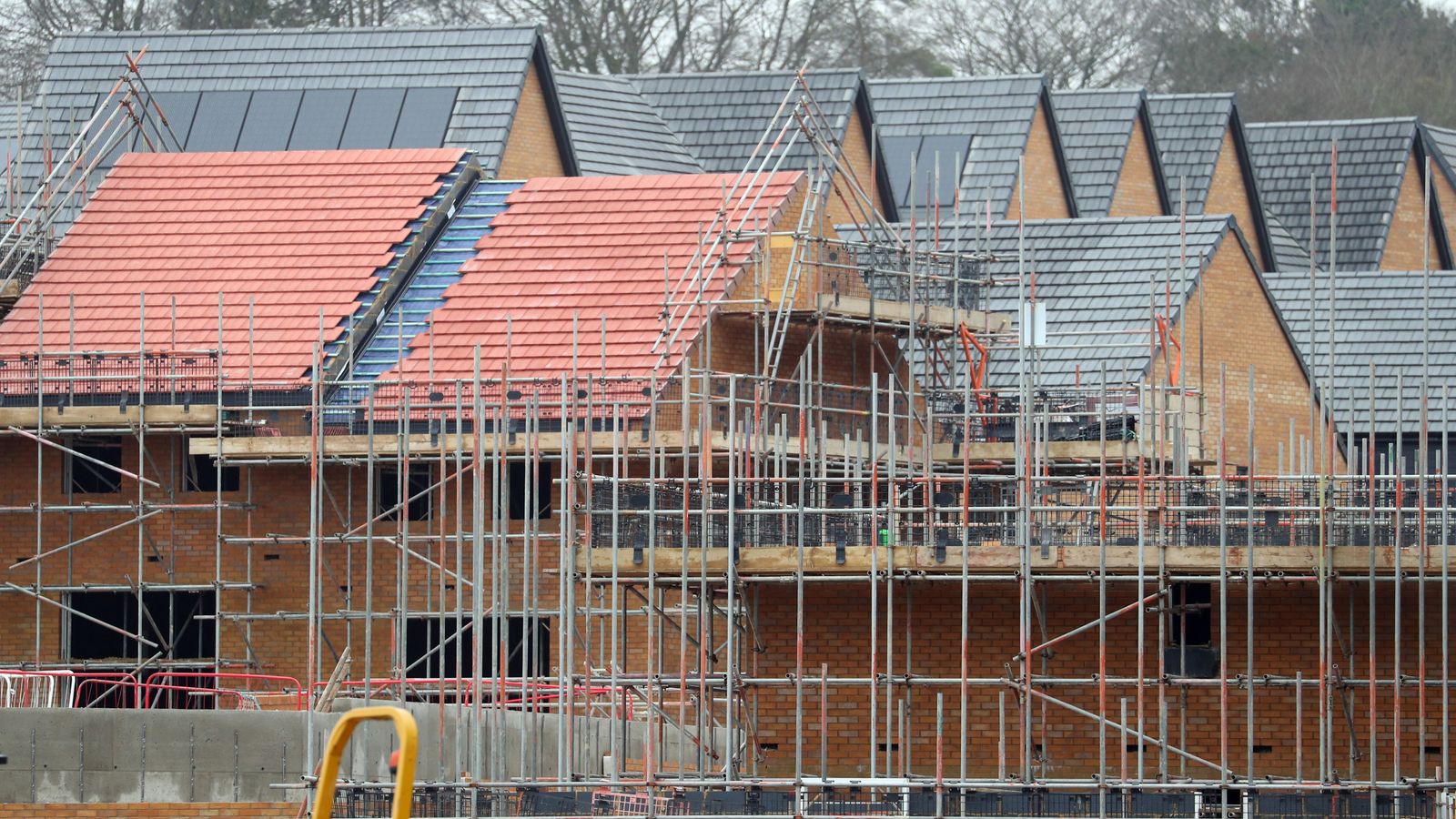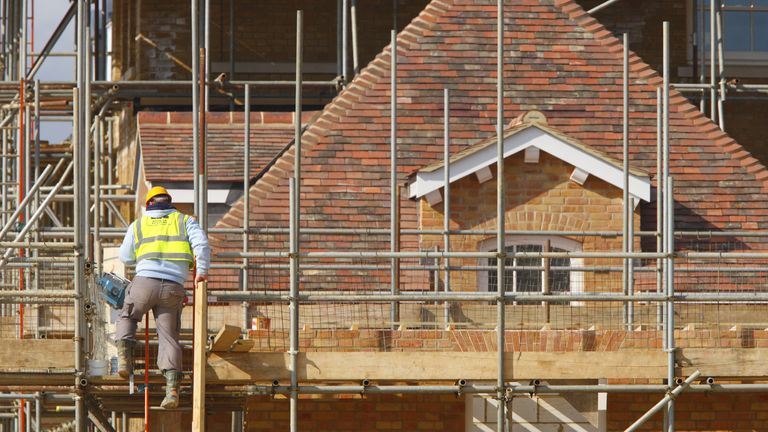Immigration rules relaxed to tackle construction worker shortage
A shortage of skilled construction workers is being addressed through a relaxation of post-Brexit immigration rules.
The Home Office said bricklayers, plasterers, roofers and carpenters were being added to the shortage occupation list (SOL).
This is the government-agreed list of jobs that allows employers to address recruitment difficulties through immigration, which it has pledged to limit since the UK left the European Union and its freedom of movement obligations.
Roles on the list lower visa salary requirements and application fees.
It has previously been extended to health and social care staff and even butchers.
The government’s decision to support recommendations covering builders by the Migration Advisory Committee, is a nod to the recruitment difficulties experienced by the industry since the exodus of workers began in the wake of the financial crisis.
That stampede for the exit was later exacerbated by the COVID pandemic as many workers did not return, mainly from eastern Europe, following Brexit.
The Office for National Statistics (ONS) reported in 2021 that the construction industry had lost more than a third of its EU-born workforce since 2017.
Earlier this year, an industry training board estimated an additional 225,000 workers would be needed to meet demand by 2027.
The easing of immigration rules will especially help housebuilders, who have long complained of a dearth of skilled labour.
Recent research by the Federation of Master Builders (FMB) showed 41% of members reporting difficulties recruiting bricklayers, with almost half of the respondents delaying work as a result of skills shortages more widely.
Another group, the National Federation of Builders, said: “It’s great that the government is listening to industries’ long campaign to add these desperately needed roles to the SOL.
“Foreign workers remain vital to make up for a shortfall in the UK construction workforce.”
On the issue of securing more domestic labour, both groups called for more training support, explaining that it takes up to three years to conclude many apprenticeships.
The help comes at a time when the sector’s short-term ambitions are being hampered by the effects of rising interest rates.
Just last week, the UK’s biggest housebuilder cut its construction targets for 2024 by 20%.
Barratt Developments’ decision reflects falling house prices due to growing affordability concerns as Bank of England rate hikes to tackle inflation take a toll on demand.
That will do nothing to help the government achieve a target of 300,000 new homes annually by the middle of the decade.
The latest ONS data showed falling volumes for both construction repairs and new orders alike over the three months to May.
For all the latest business News Click Here


